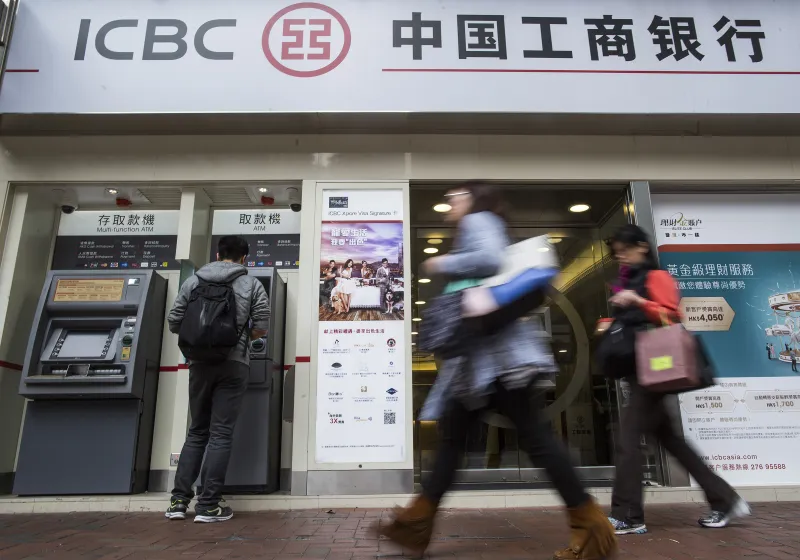The Industrial and Commercial Bank of China, the world’s biggest bank by assets, is rebranding and restructuring its offshore investment subsidiary into a global asset management company, an executive at the company confirmed.
The new Hong Kong-based entity, ICBC Asset Management (Global) Company Limited, will be a core part of group’s strategy. It aims to serve needs of both Chinese investors as they begin to invest outside the region as well as foreign investors as they come to China, Gao Ming, the chairman and executive director of ICBC (Asia), told Institutional Investor in a recent interview at ICBC’s offices in Hong Kong.
Gao said in an earlier statement announcing the move that the new company “shoulders the important responsibility of growing the group’s cross-border asset management business.”
The global asset management arm is inheriting more than HK$61 billion ($7.8 billion) in assets under management from the bank’s domestic asset management unit, as well as funds from offshore investors in ICBC (Asia) Investment Management Co., the entity that is being restructured, according to bank officials.
Executives at the bank predict that assets under management will grow rapidly in the coming years, especially as ICBC, which has 24 trillion yuan ($3.6 trillion) in assets, expands into key markets across Eurasia as part of China’s global infrastructure buildout — known as its Belt and Road initiative — in countries along the Old Silk Road.
[II Deep Dive: China Updates the Silk Road]
“Cross-border finance is key to our future,” said Gao in the interview. She added that Hong Kong also is key to ICBC’s future success, and that top executives in Beijing placed the headquarters of the new global asset management company in Hong Kong because they wanted to strengthen the city’s role as a global financial center.
ICBC is not new to global markets. It made a major move into offshore banking in 2007, when it announced it would buy a 20 percent stake in the Standard Bank of South Africa for more than $5 billion. In 2012, it purchased an 80 percent stake in Standard Bank of South Africa’s subsidiary in Argentina for more than $600 million.
Onshore, the bank has been readjusting its strategy as well, according to bank executives, adding that ICBC’s global asset management expansion complements its new onshore strategy, which includes increasing emphasis on wealth management services.
Wealth creation will continue for some time to come in China, said bank executives, who argued that foreign ratings agencies’ concerns were inconsistent with the reality in the Chinese markets.
“We take note that Standard & Poor’s revised its rating for Chinese sovereign debt from AAA to AA, but we see little impact from this,” said Gao. “S&P’s move is more of a technical analysis of a rating company. It has had no impact on China. The Chinese government, of course, will continue to restructure.”
Gao added that she thinks the government’s macroeconomic and restructuring efforts are working, pointing to rising corporate profits in the past six months and the fact that financial markets continue to be stable.
She also cites rising consumption, which is now 60 percent of the nation’s gross domestic product; services make up half of the economy. Gao also points to the increasing sophistication among Chinese manufacturers and how private consumption has spawned the rise of dozens of giant new-economy companies, including e-commerce firm Alibaba Group and social media giant Tencent Holdings.
“When you look at China’s economy you can’t just judge it by the growth rate,” she says. “You must look at the details of how the changes are occurring.”






